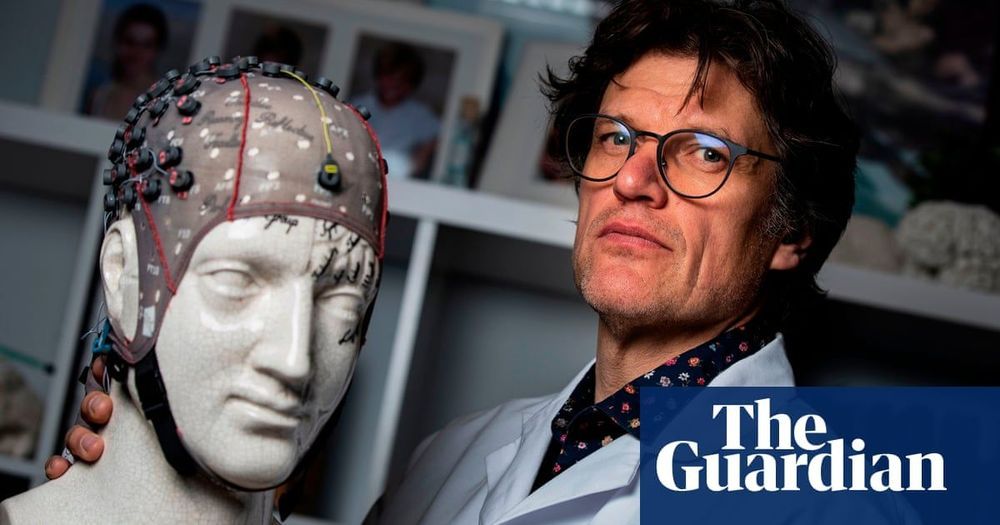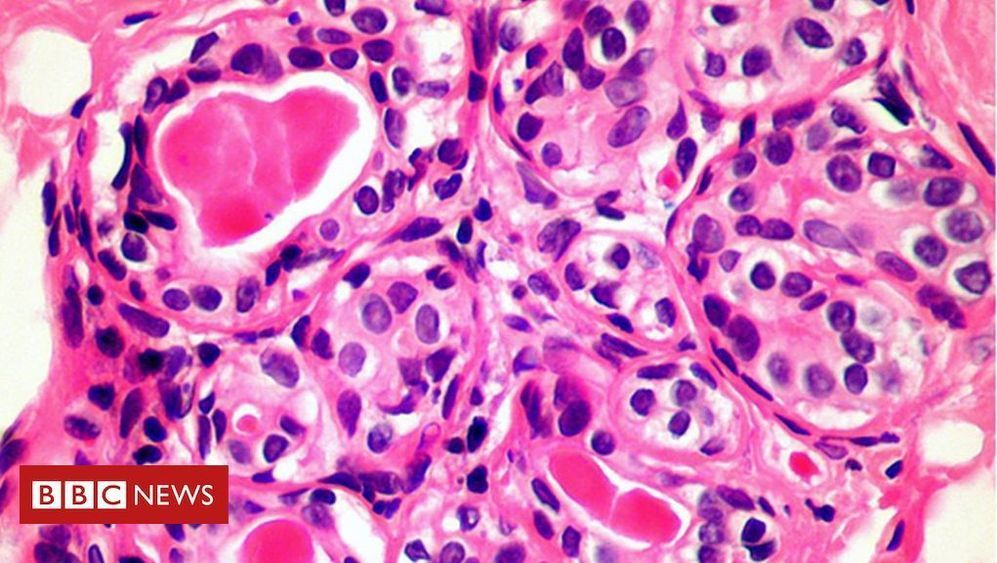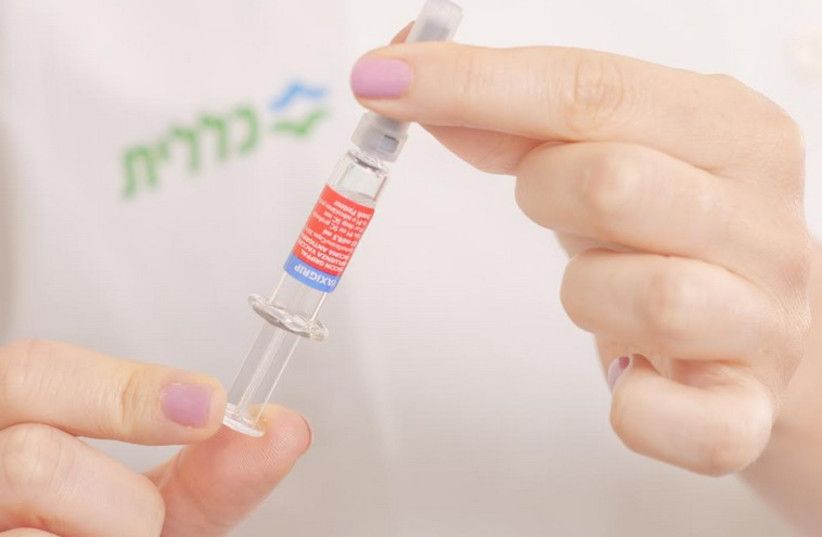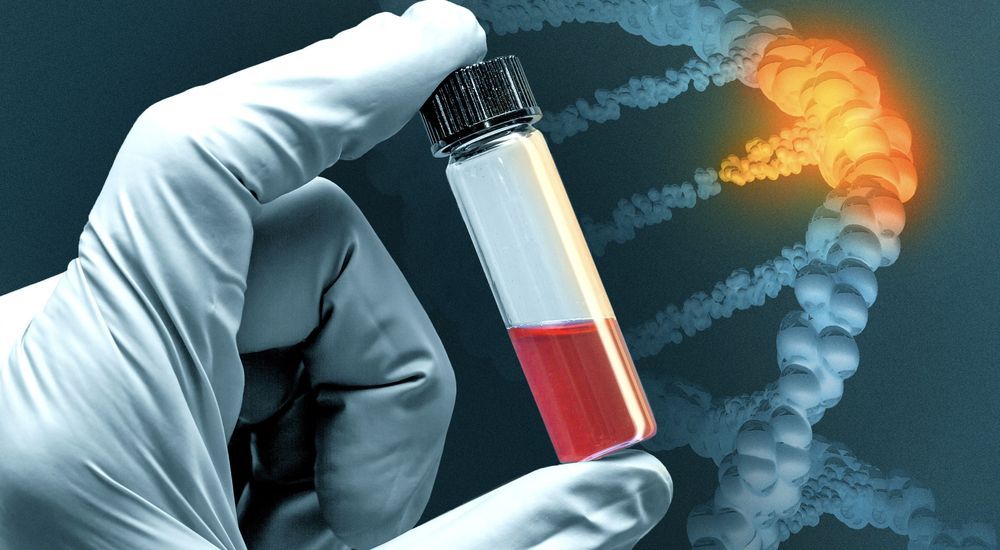Generet prize will fund more trials by Steven Laureys to help written-off ‘vegetative’ patients.


The lungs and placentas of fetuses in the womb — as young as 11 weeks after conception — already show a bacterial microbiome signature, which suggests that bacteria may colonize the lungs well before birth. This first-time finding deepens the mystery of how the microbes or microbial products reach those organs before birth and what role they play in normal lung and immune system development.
A team led by University of Alabama at Birmingham researcher Charitharth Vivek Lal, M.D., found that a human fetal microbiome DNA signature is present in lungs as early as the first trimester. This fetal lung microbiome showed changes in diversity during fetal development, suggesting microbiome maturation with advancing gestational age. Finally, a placental microbiome was also present in human fetal tissue, and this microbiome signature showed some taxonomic overlap with the corresponding human fetal lung microbiome.
“We speculate that maternal-fetal microbial DNA transfer — and perhaps of other microbial products and whole live or dead bacteria — is a realistic possibility,” said Lal, an associate professor in the UAB Pediatrics Division of Neonatology. “This may serve to ‘prime’ the developing innate immune system of the fetus and help in establishment of a normal host-commensal relationship.”

Northwestern University researchers have added a new dimension to the importance of diversity.
For the first time, physicists have experimentally demonstrated that certain systems with interacting entities can synchronize only if the entities within the system are different from one another.
This finding offers a new twist to the previous understanding of how collective behavior found in nature—such as fireflies flashing in unison or pacemaker cells working together to generate a heartbeat—can arise even when the individual insects or cells are different.
3D bio-printed Lung tissue.
Rice University researcher’s bioprinting method could be scaled up to one day construct an entire organ and allow organs to be made using some of a patient’s own cells to prevent organ rejection. Researcher’s long term goals are to bioprint fully functioning organs. Synthetic organs can extend the waiting period of an average 3.6 years for a real organ.


After getting a considerable success in convincing scientists and investors, in the last decades, that undoing aging through a damage repair approach is possible and desirable, Aubrey de Grey is turning his advocacy efforts to politicians. In this video, he explains why.
Aubrey de Grey delivers a keynote on the next steps for longevity for policy makers.
Dr Aubrey de Grey is a biomedical gerontologist based in Mountain View, California, USA, and is the Chief Science Officer of SENS Research Foundation, a California-based 501©(3) biomedical research charity that performs and funds laboratory research dedicated to combating the ageing process. He is also VP of New Technology Discovery at AgeX Therapeutics, a biotechnology start up developing new therapies in the field of biomedical gerontology. In addition, he is Editor-in-Chief of Rejuvenation Research, the world’s highest-impact peer-reviewed journal focused on intervention in ageing. He received his BA in computer science and Ph.D. in biology from the University of Cambridge. His research interests encompass the characterisation of all the types of self-inflicted cellular and molecular damage that constitute mammalian ageing and the design of interventions to repair and/or obviate that damage. Dr de Grey is a Fellow of both the Gerontological Society of America and the American Aging Association, and sits on the editorial and scientific advisory boards of numerous journals and organisations. He is a highly sought-after speaker who gives 40–50 invited talks per year at scientific conferences, universities, companies in areas ranging from pharma to life insurance, and to the public.

The company’s machine learning-based tool applies advanced algorithms to Maccabi’s existing electronic patient data to identify unvaccinated individuals at highest risk of developing serious flu-related complications. These could include elderly people; those with uncontrolled chronic diseases or respiratory diseases; long-term smokers; those that are immunodeficient or have diabetes; or children, explained Dr. Jeremy Orr, CEO of EarlySign.
The EarlySign investigational algorithm flags these individuals, who are then contacted by their healthcare providers and encouraged to come into the clinic and be vaccinated. Patients can be contacted by phone, text message or even snail mail, depending on their communication preferences and the methods offered by their clinics.
Orr noted that the program is especially important this year when many people have already died from the flu in Israel and the virus is expected to take an exceptionally heavier toll than usual this year.
Science is enabling women to have children later in life as new technologies transform IVF success rates. But an increasingly globalised IVF trade also poses dangers.
Science is changing how and when families are made. Women are going to be able to have both career and family in a way that we’ve never seen before. New technologies are transforming IVF success rates. AI allows us to look at features of the embryo invisible to the human eye.
Dawn and her husband, Mike, who is 66 are proud first-time parents in Nova Scotia, Canada. They married in 1977 and tried for a baby for decades. Attempts to conceive naturally and to adopt failed. So five years ago Dawn turned to IVF and donor eggs for help.
In Canada, as in America, industry guidelines discourage embryo transfers to women over 55 who face a higher risk of prenatal health conditions including pre-eclampsia, hypertension and diabetes. Dawn considered surrogacy. She looked abroad to developing countries with less restrictive guidelines and legislation.
International fertility consultant, Crystal Travis directed the couple towards Georgia, one of the world’s least regulated fertility markets and one of the few countries that allows surrogates and donors of eggs and embryos to be paid. After medical tests, Dawn had an embryo made with a donor egg and donor sperm implanted.
The total number of fertility clinics around the world is estimated to have increased by almost 70% in the last ten years. The value of the global fertility industry is predicted to rise from $25bn today, to $41bn by 2026. Many believe there needs to be more regulation of an increasingly globalised IVF trade including Dr Danielle Lane, a fertility specialist based in San Francisco.
